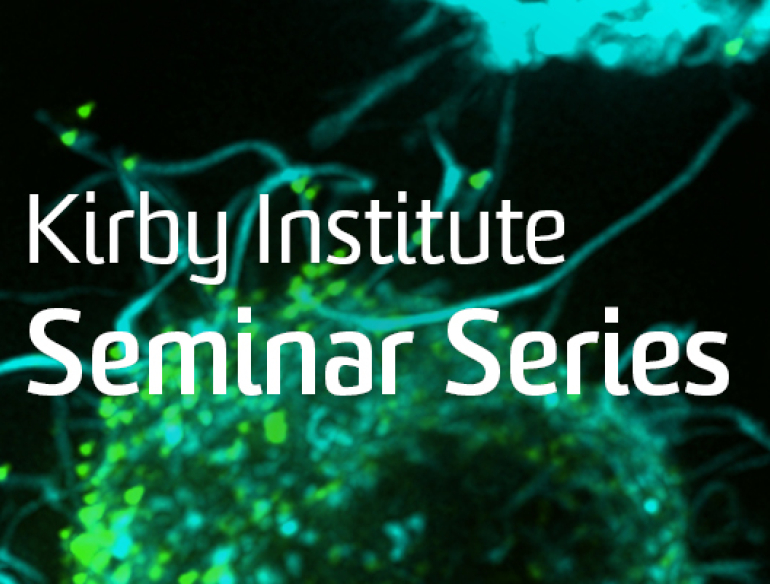Location:
Webinar via Teams Live Event
Please click on this link just before the start of the webinar
Cost
Free
Booking
https://qsforcovid.eventbrite.com.au/
Below are some highlighted questions from the webinar “Questions for COVID-19 control: schools, airborne transmission, health worker PPE and vaccination strategies” on 1 September 2020. Professor Raina MacIntyre has taken the time to answer some of the questions that we couldn’t get to in the webinar. You can read the full list of questions and answers here.
These are the personal views of Professor MacIntyre. Research papers and resources used by Professor MacIntyre can be found here.
What do we know about COVID-19 in August, that we did not know in February or March 2020?
Number one, we know that there is massive asymptomatic transmission, that wasn't even accepted back then. We thought it was only transmitted from people who are showing symptoms. So you can easily identify who's infected. That's the most important thing that we know now that we didn't know then. The second thing we know is it can be spread through the aerosol airborne route. The third thing is, we know that it's a massively vascular disease. A lot of the pathologies in the blood vessels, even in the lungs, and we know that there are really strange and chronic complications, and it's still an unfolding picture. But we know that things like Kawasaki syndrome, or the multi system inflammatory thing, we wouldn't have known about back then. We didn't know that people can be left with cognitive deficits with chronic fatigue, and all kinds of long-term effects.
What are your thoughts on the theory that previous immunisations may have a protective effect for people?
There are no previous immunisations for COVID, however exposure to seasonal coronaviruses seems to be important. It's estimated about 30% of people have cross reactive antibodies that have been generated from exposure to the cold and flu virus, coronaviruses. Whether or not they are protective or associated with antibody dependent enhancement, we don't know yet. That's still a little bit of uncertainty around that, so I think a lot more research is needed on the role of pre-existing antibodies.
Why is the second wave more severe in Melbourne?
The first wave was largely travel-related cases, with very little community transmission. The second wave was largely community transmission, and it showed us what happens when the epidemic grows silently in the community.
What percentage of the population do think needs to get the vaccine and how effective must the vaccine be to be able to go back to normal/open borders?
If the vaccine is 100% effective, about 70% need to be vaccinated. If 50% effective, herd immunity may not be possible and we will have to live with the virus. However, a vaccine may reduce the risk of death and severe disease, even if it does not prevent infection.
How much do we know about the risk of getting reinfected?
So we know that there's been several reports of reinfection. There were right from the beginning, but some of the early reports were probably just persistent viral shedding from people from their first infection. We know that it's possible with seasonal coronaviruses. There have been studies with seasonal coronaviruses that show that you can definitely get reinfected. But the second time round, in that case, you tend to not get symptoms, so it definitely reduces the severity. I think it's just too early and there's not enough studies to really know what it's going to mean for COVID-19.
Since droplets can travel more than 2 metres, should the distancing guidelines be revised and physical distancing increased?
The Lancet meta analysis that I mentioned on the masks and respirators, also looked at distance and basically 1 metre of distance will protect you, substantially. But every meter thereafter will double your protection, so any distance between you is good. If you can only manage one depending on what the setting is, that's better than none. If you can manage 2 metres or even further, that's even better.
Should mandatory mask usage be considered in NSW?
I think it should be. It's not like you're asking people to take some dangerous drug. It's a simple, cheap, effective safe intervention. As you saw from the video with the aerosols, it'll make a huge difference and with any non-pharmaceutical intervention, or even a pharmaceutical intervention. The earlier you do it, the more impact it will have. In most countries that have mandated masks, they've waited till after the peak of the epidemic. In Victoria, in New York, they brought in the mandate quite late in the piece. If it's brought in early, you'll end up with a smaller epidemic.
You can read the full list of questions and answers here.
Kirby Institute Seminar Series presents
 |
Professor Raina MacIntyre Raina MacIntyre (MBBS Hons 1, FRACP, FAFPHM, M App Epid, PhD) is a NHMRC Principal Research Fellow and Professor of Global Biosecurity. She heads the Biosecurity Program at the Kirby Institute, which conducts research in epidemiology, vaccinology, bioterrorism prevention, mathematical modelling, public health and clinical trials in infectious diseases. Her areas of expertise include personal protective equipment, vaccinology, epidemic response and emerging infectious diseases. |
Abstract
There are so many unknowns about COVID-19. In this seminar, four of these areas of uncertainty will be addressed.
- Schools: to what extent do children get infected with and transmit SARS-CoV-2?
- Transmission: is it airborne?
- The frontline: why are so many health workers getting infected and how can we better protect them?
- Vaccination: never in the lifetime of currently working health experts has mass vaccination been undertaken. What lesson can be learned from previous infectious diseases when it comes to rolling out an unprecedented vaccine program?
Hear from one of Australia’s foremost COVID-19 experts, Professor Raina MacIntyre who will unpack the available scientific evidence in relation to questions and controversies in COVID-19 control.
